There can be your advertisement
300x150
Interior Design Trends in 2023: 9 Main Trends According to a Designer
Today's trends are not about blindly following fashion. Comfort, coziness, and care for nature are at the core.
From the world of fast fashion, we are moving towards deeper and more substantial values. The main idea is to care for comfort and approach the choice of home ideas consciously, rather than endless consumption and flawless adherence to trends.
New waves in interior design smoothly synchronize with current trends of gentle care for nature, innovative technologies, and mindful consumption. Read more about the main trends of this year by asking designer Tamara Voroncova — check our article.
Voroncova Tamara - Interior Designer at 'Own Design' Studio, Participant of TV Projects
Comfort and Functionality
Post-pandemic, the design world increasingly focuses on comfort, so convenience and functionality take center stage. Modular soft furniture that is easy to combine and adapt to your needs becomes more popular. For example, a modular sofa can be divided into several chairs for meeting friends or reassembled into one unit for family movie night.
Equally interesting are the ideas of using sound-absorbing materials in interior design. Light fixtures with felt inserts to improve acoustic comfort or sound-absorbing panels, paintings, various partitions, and screens — all these have moved from public interiors to residential spaces and are likely to stay with us for a long time.
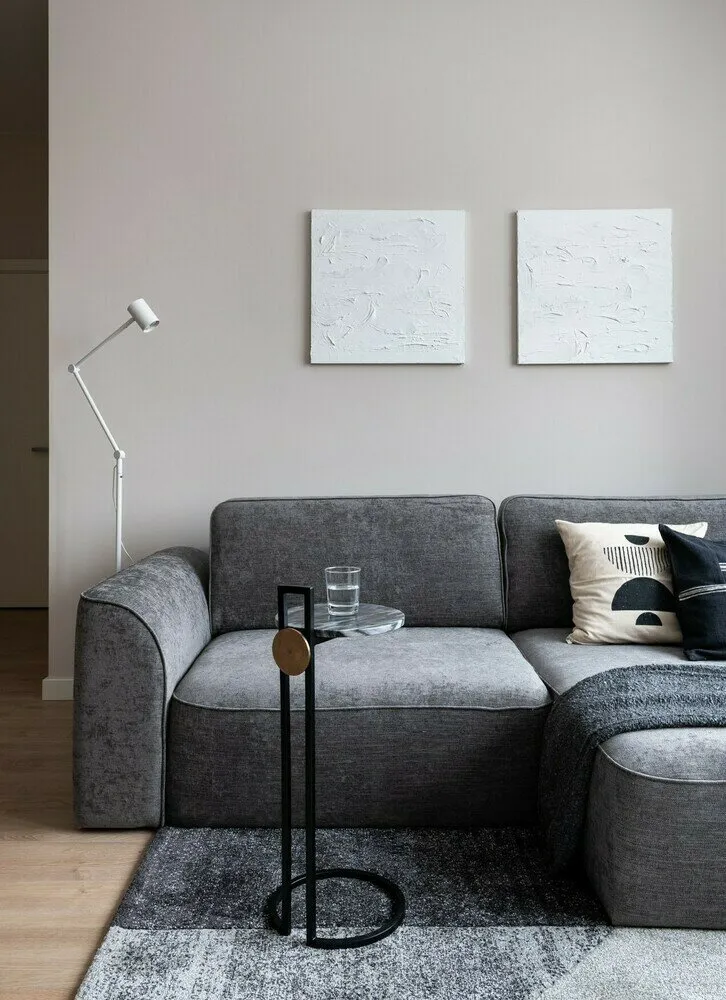
Design: Anna Mal'tseva
Rounded Lines and Shapes
In the trend, simple shapes with smooth edges and flowing lines. They give space more comfort, making the home safer and cozier.
Flowing and round shapes are not only relevant in the design of soft and cabinet furniture but also applicable to lighting fixtures, carpets, decor, and even the geometry of rooms. For example, at the planning stage, one can create rounded corners, door or window openings in the shape of arches. In a completed interior, try adding oval mirrors, half-circle chairs, or wall panels without sharp angles.
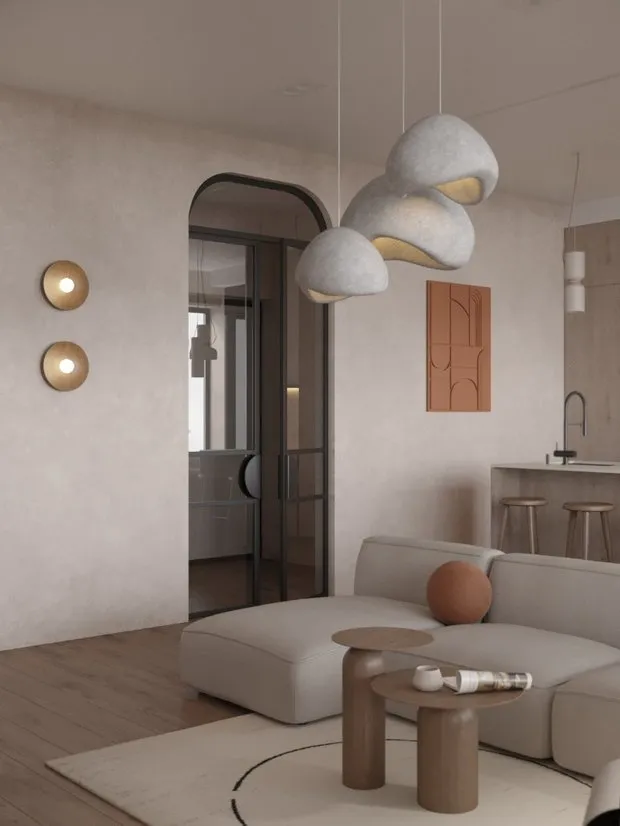
Design: Tamara Voroncova
Fresh Ideas in Lighting
The trend of soft lines and shapes provides space and freedom for creativity — designers create sconces, chandeliers, and floor lamps imitating the forms of a croissant, brioche, or ball.
Additionally, there is still a trend for rhythmic patterns composed of many facets, cells, and relief surfaces on shades, bowls, pendants, and stands. Visually such items may resemble bee honeycombs.
Also, one can experiment by using light sources in a retro-futuristic style, complex geometric backlighting, or lamps with gasoline-like flow, visually resembling a rainbow or opalescent northern lights.
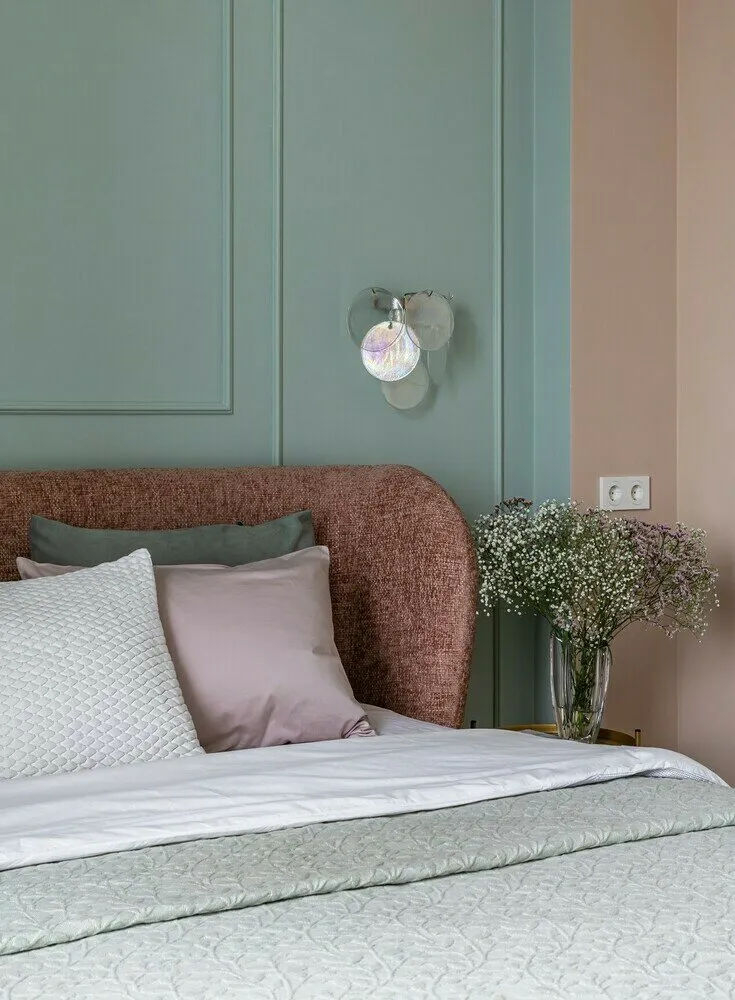
Design: Pakina Design Studio
Warm Color Palette
Cold white and gray in interiors have given way to warm beige and various wood tones. Again, everything is oriented toward maximum comfort to make staying at home pleasant. Also in trend are mustard and apricot shades, polished brass color, but it's better to use these as accents.
A calm palette can be diversified with dark elements. For example, dark legs on light furniture or dark fittings on light fixtures.
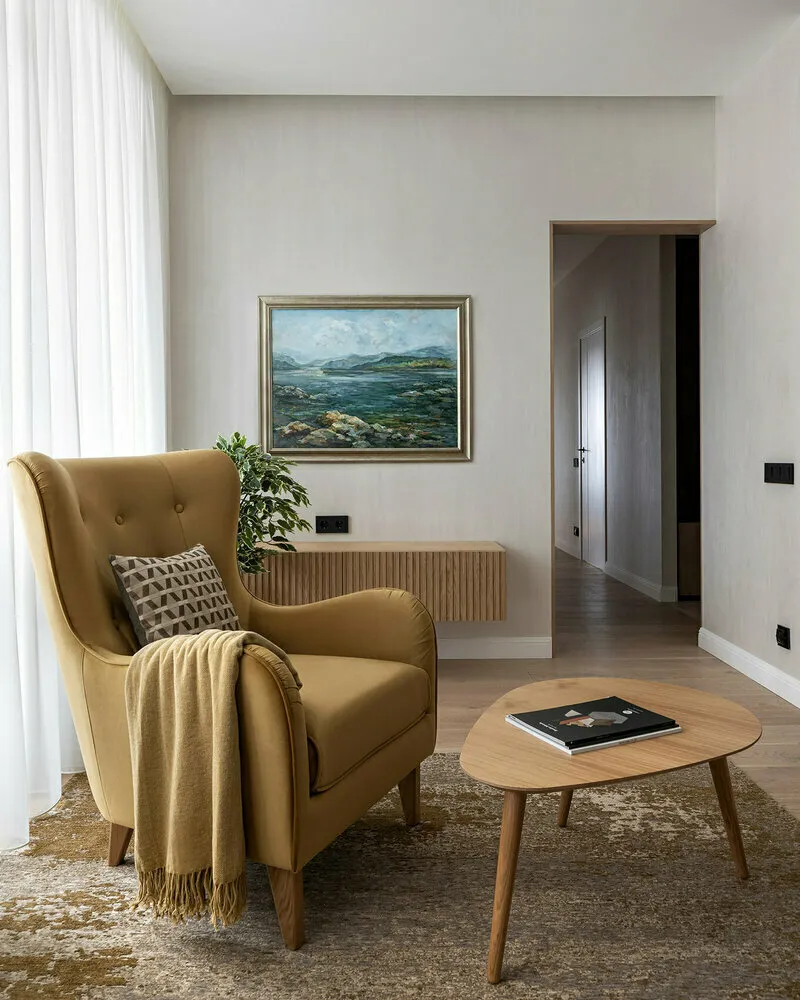
Design: Anastasia Kurganova
Textured Fabrics
Textured and rough fabrics make an interior visually more complex and cozy. Currently, relief and rough fabric boucle is particularly popular. Sofas, armchairs, and footstools made from this material can transform interiors of various styles.
As an alternative for home, consider soft wool seating for chairs, textiles made from sheepskin for armchairs, and even felt wallpapers. Kinesthetic comfort is provided by pleasant-to-touch felt, linen, and merino wool.
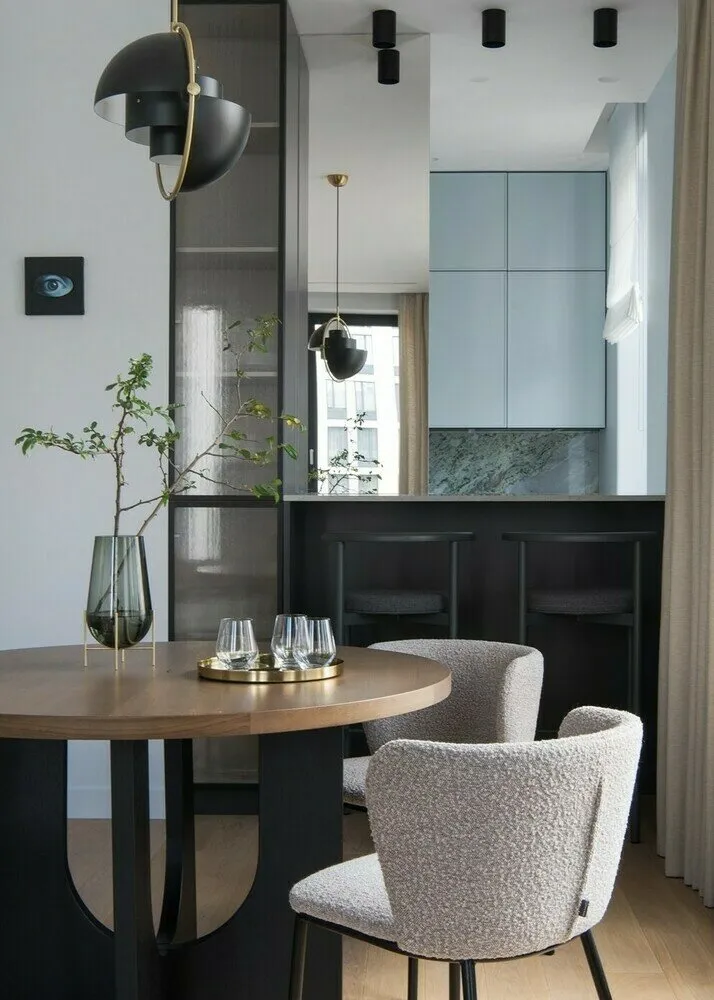
Design: Ksenia Skorogod
The Return of Rattan
Alongside natural fabrics, wood, and stone, rattan has also returned to the leaders. Its natural texture looks great in interior design and helps create a cozy and warm atmosphere.
Rattan is used in soft armchair and lounge upholstery, screen decoration, and cabinet facades, wardrobes, and bedside tables. From this material, interestingly shaped bed headboards, chair backs or seat cushions can be made. Rattan shades provide beautiful diffused light comfortable for the eyes.
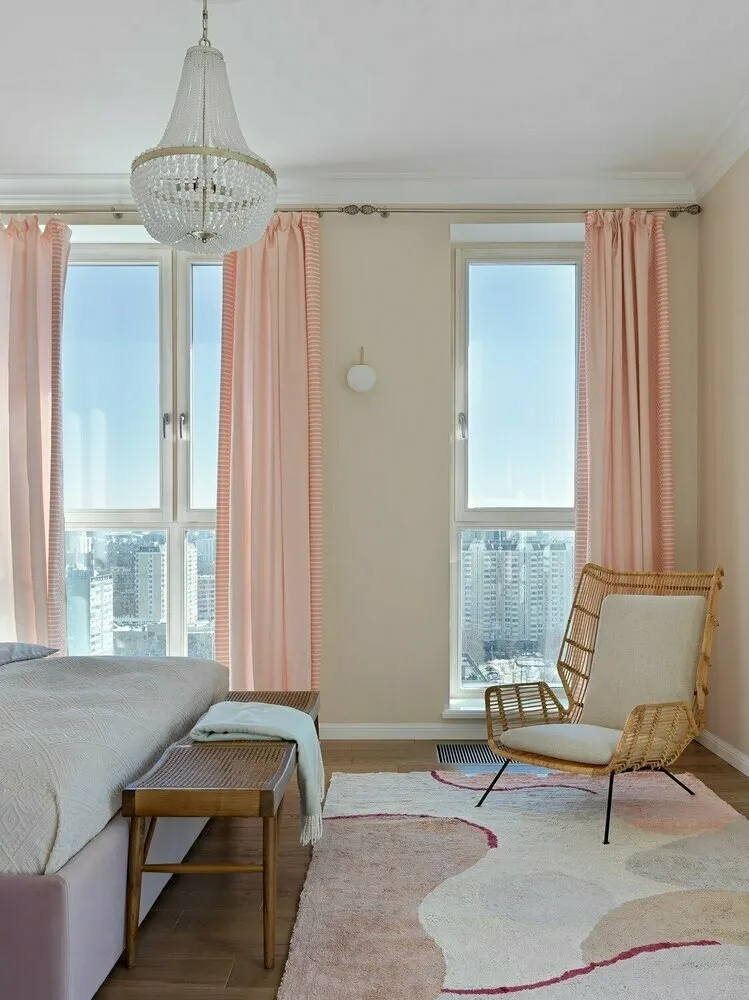
Design: Julia Telnova
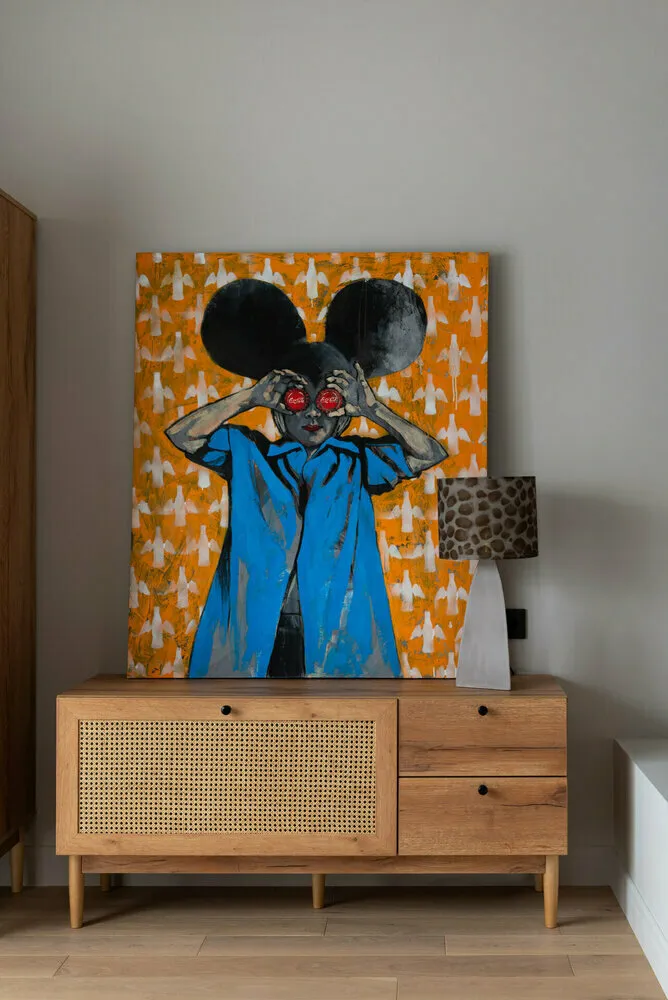
Design: Anna and Dmitry Korobko
Leather Decor
Leather is another trending material. However, it should be used selectively: it can be decor, small details on lighting fixtures or furniture. Leather details in cognac color beautifully complement the trendy beige interior and make minimalist design more playful.
Pay attention to light fixtures with leather straps as hangers. Often in such models there is a buckle for adjustment, meaning you can customize the height of the lighting fixture to your needs — it's convenient. Leather details in the form of ribbons, cords, or straps are used in soft furniture.
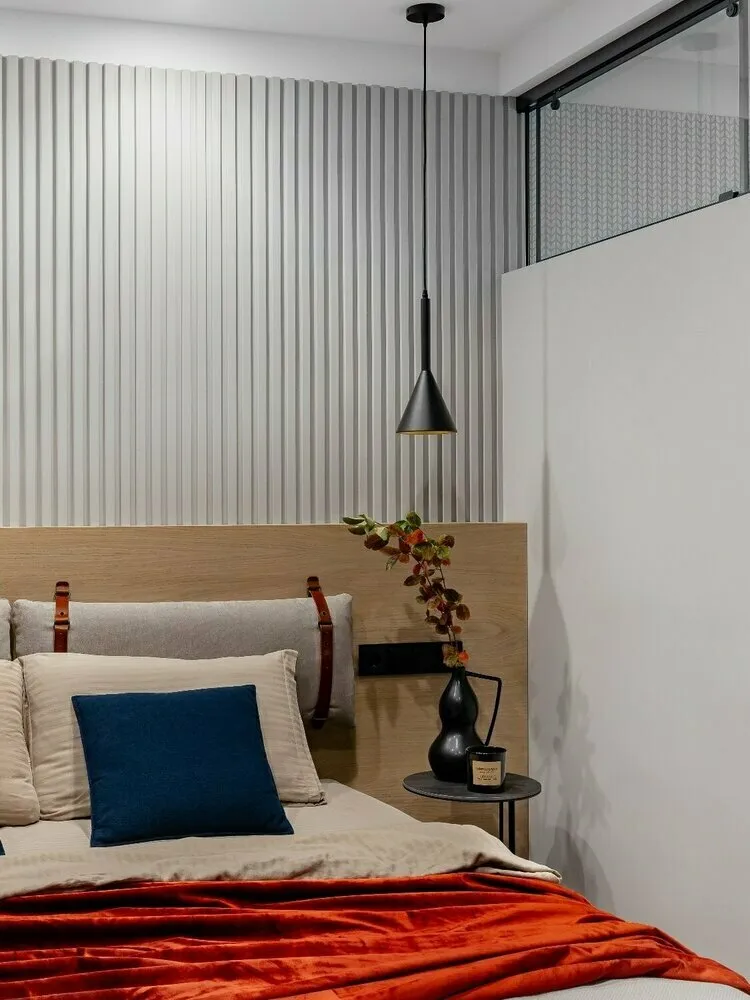
Design: Katerina Shilyuk
Mindful Consumption
Sustainable design continues to develop. It is characterized by long-term concern for ecology and ethical production practices. Not only the material composition but also how it was made matters: no damage to nature, use of renewable resources, fair labor conditions.
People strive to preserve traditions, valuable items, and make their homes unique. Thus, there is a trend towards the longevity of objects, passing them down from generation to generation, restoration, and integration of furniture from past decades into modern interiors. This approach helps to abandon uncontrolled consumption in favor of careful treatment and attention to household items.
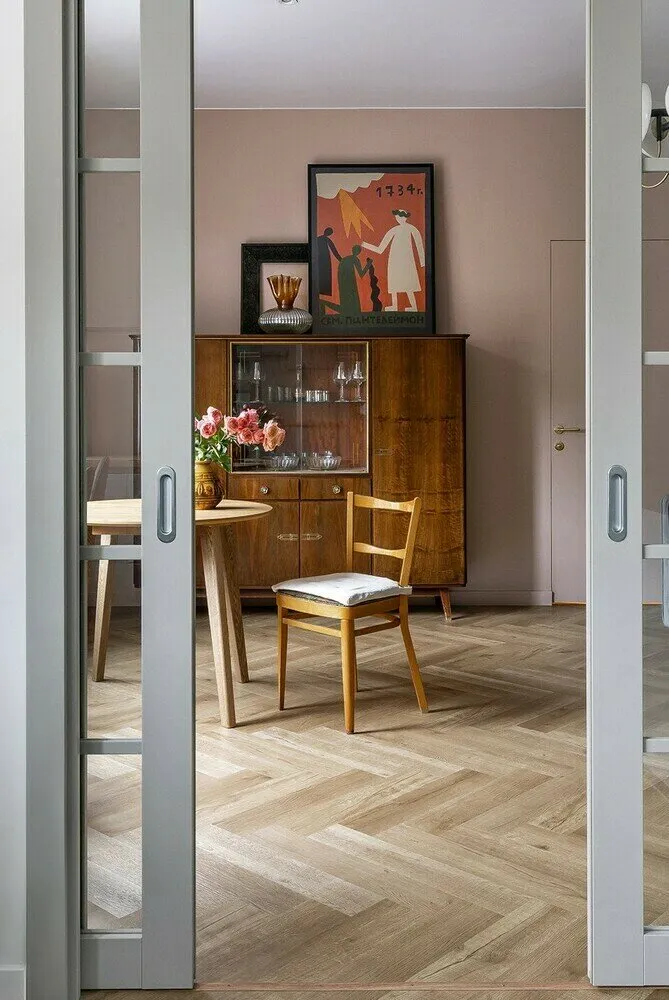
Design: Natalia Vasilieva
Alternative Materials
The desire to save natural resources and treat the environment kindly motivates designers to create new materials and find fresh ideas for familiar ones.
Acrylic chandeliers imitate Bohemian crystal items. At the same time, innovative synthetic glass is stronger and lighter than natural originals, allowing for whimsical and non-standard models.
In design, alternatives to concrete are used, made from a specific type of sand and some plant species. Cork is used for cladding not only floors but also walls and ceilings.
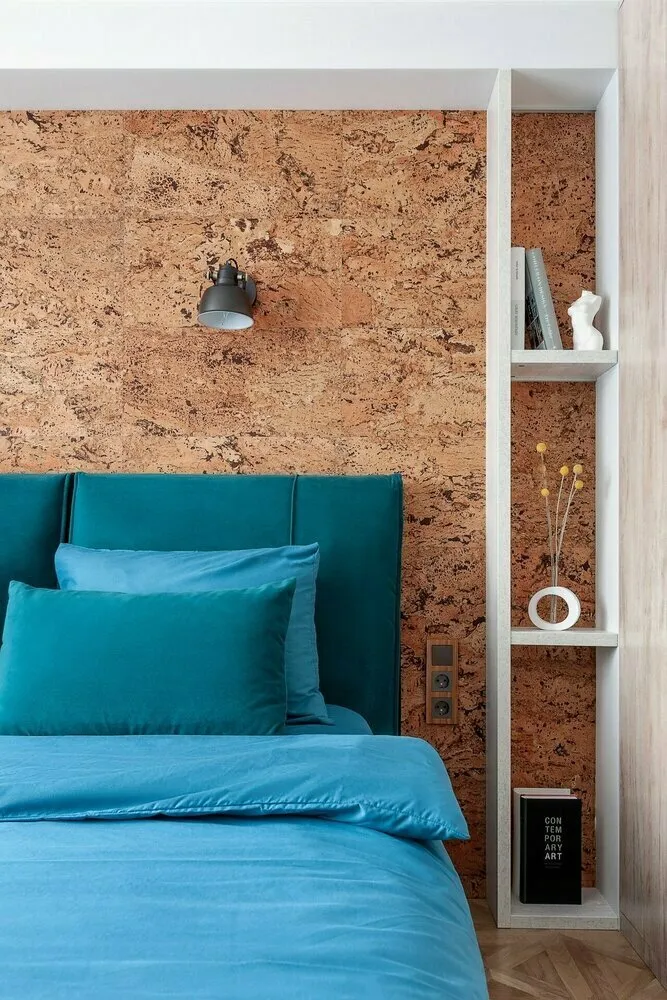
Design: Valeria Mironenko
Photo on cover: Design project by Ksenia Skorogod.
More articles:
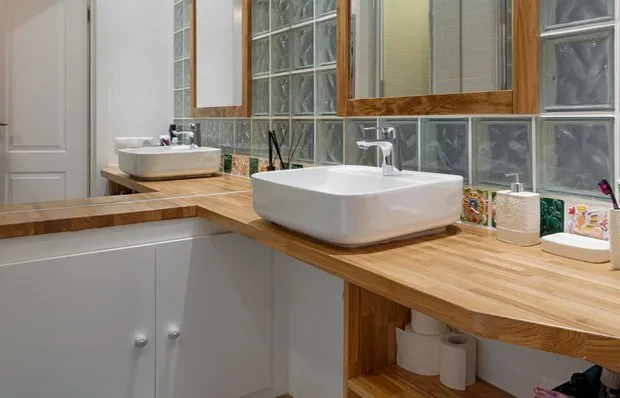 Storage in a Small Bathroom: 6 Ideas from Real Projects
Storage in a Small Bathroom: 6 Ideas from Real Projects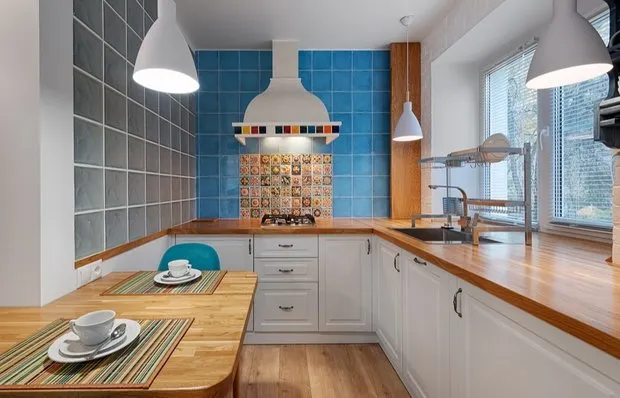 How They Redesigned a Standard Kitchen in a Tiny Khrushchyovka
How They Redesigned a Standard Kitchen in a Tiny Khrushchyovka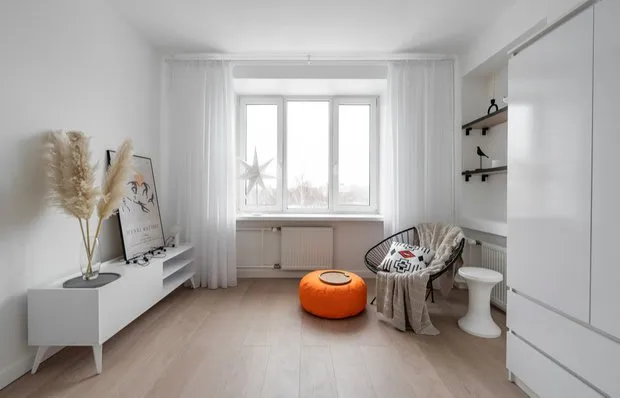 Before and After: How They Refreshed Old Apartment Renovation in a Brezhnev-Era Flat for 850 Thousand Rubles
Before and After: How They Refreshed Old Apartment Renovation in a Brezhnev-Era Flat for 850 Thousand Rubles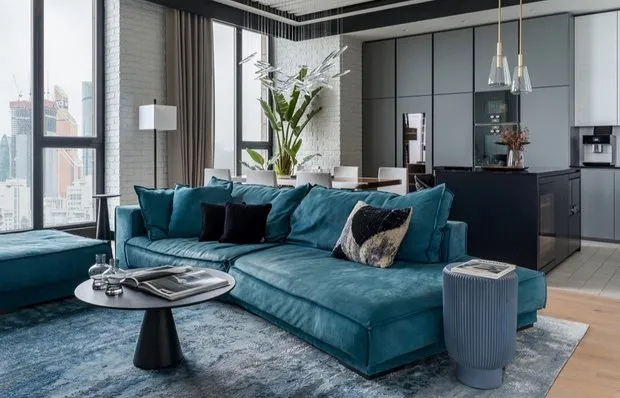 Spacious Dream Apartment with Two Children's Rooms and Three Bathrooms
Spacious Dream Apartment with Two Children's Rooms and Three Bathrooms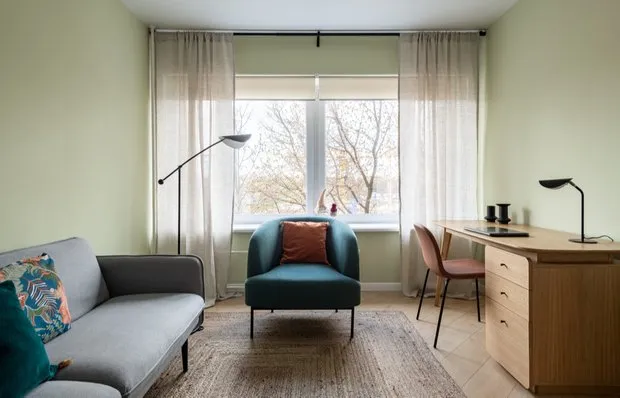 Bright and cozy 2-room apartment, 49 sq. m in a standard Khrushchyovka
Bright and cozy 2-room apartment, 49 sq. m in a standard Khrushchyovka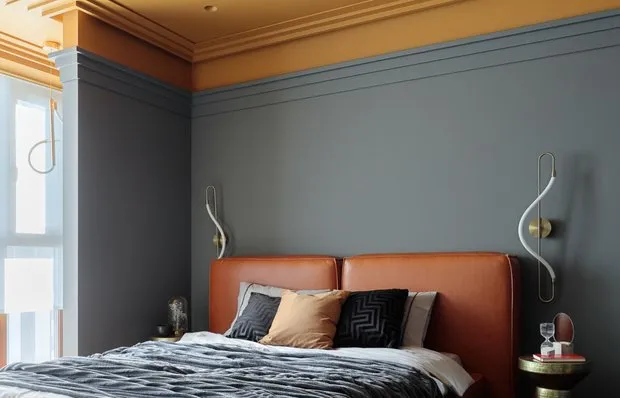 Euro Studio 35 m² with Grey Walls and Orange Ceiling
Euro Studio 35 m² with Grey Walls and Orange Ceiling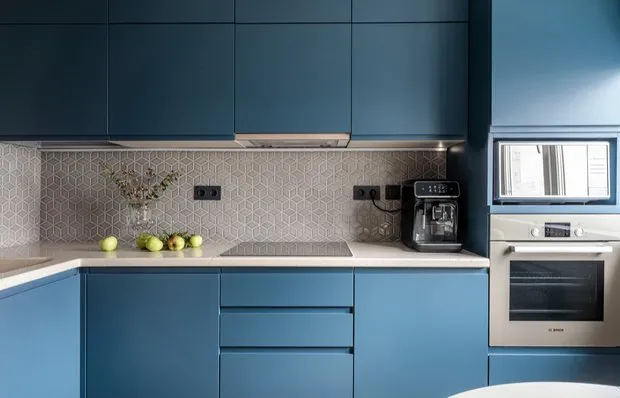 Cozy and Functional Kitchen in a Standard Panel House
Cozy and Functional Kitchen in a Standard Panel House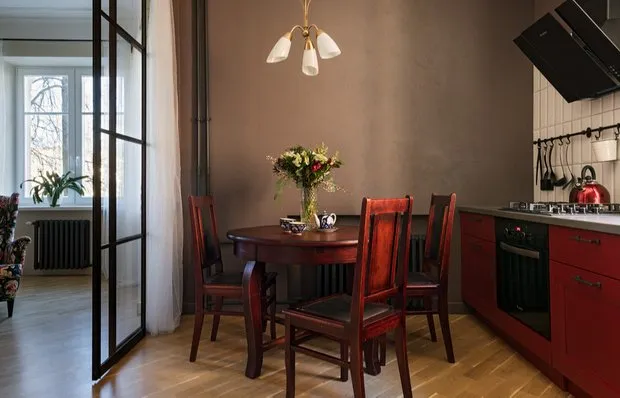 Before and After: How We Transformed a Stalin-era Apartment (66 sqm)
Before and After: How We Transformed a Stalin-era Apartment (66 sqm)